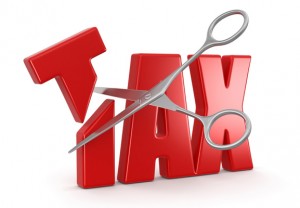If you run a small business, or are about to start one, you’ll need to apply for an Australian Business Number (ABN). Find out why you need one and how to apply for it.
An unique number for every business
An ABN is unique to each business. It’s a legal requirement for anyone who wants to start an enterprise in Australia or who wants to register for GST (Goods and Services Tax). Even if your business isn’t going to register for GST, you still need to apply for an ABN which you do through the Australian Business Register (ABR) – it’s free to apply. Your business will use its unique number to identify itself when dealing with the government, other businesses and the public.
You’ll be asked to provide lots of information when you apply for an ABN, including what type of entity your business is – e.g:
- individual/sole trader
- partnership
- company
- trust
Every business entity (whether a sole trader, partnership, company or trust) that applies for an ABN only needs the one number. However, you can choose to run more than one enterprise with a single ABN – for example, a furniture shop, a curtain outlet, and a fabric supplier could all use the same number if they’re part of the same business entity. But if any of the operations are run by a different business entity, they’d require a separate ABN.
So it’s important to choose the right structure for your business. You should always seek professional advice before before making any decisions about registering for an ABN or choosing your business structure. We can provide you with expert advice to ensure that you meet your legal obligations and protect your personal assets.
The advantages of having an ABN
One of the main advantages is that you’ll save time and money. That’s because other businesses are legally required to withhold tax from payments to you if your business doesn’t quote an ABN on invoices. And in this case, they must withhold it at a rate of 46.5 percent. So even though your business can claim back any excess tax paid in its tax return at the end of the year, it’s not ideal for your cashflow.
Having an ABN also means your business can:
- claim GST credits (when registered for GST)
- claim fuel tax or energy grants credits (if you qualify)
- stay compliant and be able to lodge activity statements (BAS/IAS) with the ATO
- confirm your business identity to others when ordering and invoicing
- avoid pay-as-you-go (PAYG) tax on payments you receive (see below)
- obtain an Australian domain name (for your .au website)
- deal with other businesses more seamlessly.
Registering an ABN is a separate process to registering a business name.
Be prepared – 11 things to check before you apply
Check the list below before you begin your application process. You’ll be asked the following questions or be required to provide the following information:
1. Do you already have an ABN?
Do you already have, or have you previously had an ABN for the entity you’re applying for? If so, you’ll need to provide it. If you’re unsure, use the Lookup service to check.
2. Do you use the services of a tax agent?
If you are, you can provide their tax agent number which can be found on your income tax return. Recording your tax agent’s number against your ABN means they can deal with the ATO on your behalf.
3. Do you have an Australian Company Number or an Australian Registered Body Number?
Any company or registrable Australian body must register with ASIC before they apply for an ABN. Once registered, ASIC will issue you with an Australian Company Number (ACN) or an Australian Registered Body Number (ARBN).
4. What is the name of your business?
Say it’s “Joe Blogs Plumbing”, this is the legal name of your business and is the name that appears on all your official business documents or legal papers so it needs to be registered. If you are an individual/sole trader and you don’t have a business name, use your own name.
5. What is your tax file number?
The quickest way to get your ABN online is by providing your tax file number (TFN) and the TFN of any of your business associates. If you or your associates are Australian residents (over 18) and you don’t provide all relevant TFNs, you may not get your ABN immediately.
6. What are your business locations?
These are the permanent physical premises where your business operates. For each location you will be asked to provide:
- street address
- business activity details
- phone and email contacts.
7. Who is your authorised contact?
This is either you or someone you have nominated to deal with any issues relating to your business’ ABN. You or they must be able to make changes or updates on behalf of the business and you’ll need to provide the following details:
- name
- position held
- mobile, phone and fax numbers
- email address.
8. What are your business associates’ details?
If you have business associates, their details must be provided with your ABN application. They may be individuals or organisations depending on your entity type. For each associate you will have to provide:
For individuals
- date of birth
- gender
- position held
- TFN
- residential address (if no TFN is provided).
For organisations
- ACN or an ARBN – if applicable
- ABN – if applicable
- TFN (or business address)
- date of formation (if TFN not provided).
9. What is the main activity of your business?
It is the main source of income for your business. If you operate from multiple locations, you will be asked to provide the main business activity for each.
10. From which date do you need your ABN?
You should nominate the date when your business name was registered or when you intend to begin work.
11. Are you providing the correct information?
Before submitting your application, you need to complete a declaration stating that the information you have provided is true and correct.
How do you apply for an ABN?
There are three main ways to apply:
- online via the Australian Business Registry
- by downloading the form, completing it, and mailing it in
- through a tax agent.
Three other important things to remember when applying
Chances are you’ll need to do the following (if you haven’t already done so):
1. Register for GST
You need to register for GST if you run a business and your GST turnover is $75,000 or more ($150,000 for a not-for profit business).
If you’re not registered for GST, check each month to see whether you’ve reached the threshold, or are likely to exceed it. If your turnover exceeds the relevant threshold, then you must register within 21 days of reaching it. Learn more here about registering for GST.
2. Register for PAYG
Under the pay-as-you-go (PAYG) withholding rules, you have an obligation to collect tax from the payments you make to your employees (and some businesses) so they can meet their end-of-year tax liabilities. Learn more here about registering for PAYG.
3. Register for fringe benefits tax
If you’re an employer and you provide fringe benefits to your employees, you may have to pay fringe benefits tax.
Some common fringe benefits are:
- private use of a work car by an employee or director
- paying private expenses for an employee or director – eg health insurance premiums, club memberships, school fees, holiday expenses, on-site accommodation.
It’s a good idea to register for fringe benefits tax as soon as you’ve decided you’ll provide benefits to your employees. Learn more here about registering for fringe benefits tax.
A better way to do business
Having an ABN will make it a lot easier to deal with other businesses, the ATO and other government agencies. Most people will expect you to have one, plus it means you can claim tax credits and receive grants (if applicable).
If you don’t apply for an ABN, chances are you’ll need one in the near future. Don’t just leave it on a to-do list somewhere – check the points above and apply now.
If you would like help with this, speak to us today. We can set everything up for you and help you get your business off to the best start. Call us on 9204 3733 and book a free no obligation meeting. As small business specialists, we can provide you with the best advice and support. Speak to the experts today.
Other related blogs:
Monthly checklist for your small business
Tips for Managing Debtors When You’re Self-Employed








Comments are now closed for this article.